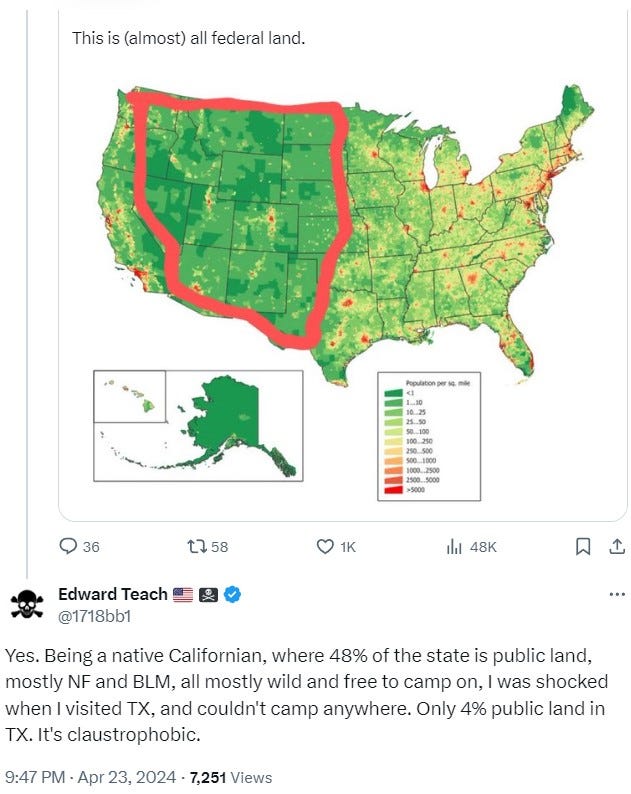Libertarianism does not Guarantee Freedom
The Tyranny of the Privatization of The Commons
source: @1718bb1 on X
One of the greatest things about America is being able to explore vast swaths of open space. While property rights are crucial to protect, there is also a tyranny in the privatization of the commons. While the only Red State I have visited is Utah, to visit Zion National Park, a common complaint I have heard about Red States like Texas is the total privatization of space. This means a lack of space to explore and enjoy. Not to mention Red States often have excessive usage fees, which can end up being as intrusive as income taxes.
You can find freedom on state lands, like National Parks, that you can’t on private property in cities and suburbs. While I appreciate the vibrancy and dynamism of dense urban areas, population density tends to limit freedom, as people impose their wills upon others, while sparsely populated areas tend to be more free.
Libertarianism does not guarantee freedom but rather creates some new freedoms while abolishing others. There are both positive and negative freedoms and the private sector can also infringe upon freedoms, not just the State. If one feels unfree then they are unfree, regardless of libertarian or capitalist arguments about private enterprise.
UBI offers some freedom from being a slave to your employer, and some freedom from cancel culture, assuming it is unconditional without means testing. Government regulations can protect people from being preyed upon by banks and corporations, such as high interest fees. Also, corporations can be just as bureaucratic and managerial as the government.
While I see three major roles for Government, protection of national sovereignty/borders, protection of wilderness/open space, and UBI, everything else can be quasi-libertarian. Regardless, the concentration of power is much more important than the distinction between private vs public, which is why I am more sympathetic to distributism rather than capitalism or libertarianism.


I fully agree. Distributism is must be the way forward. Great article.